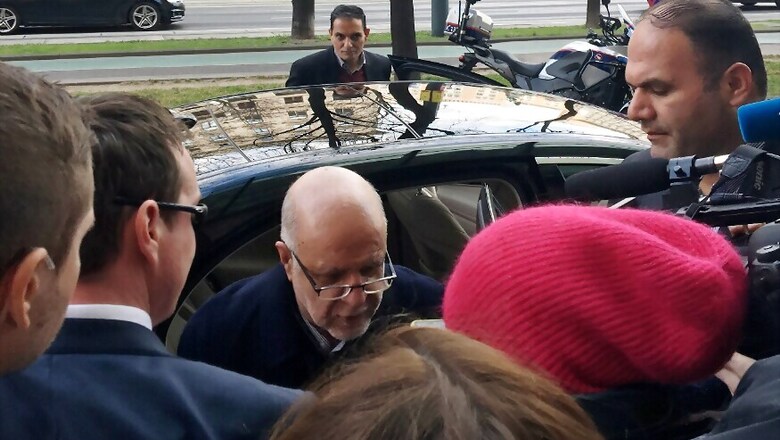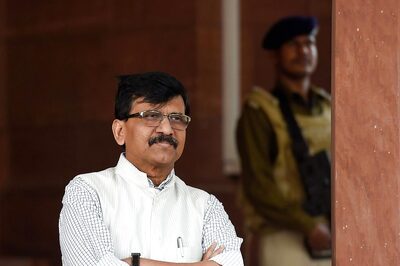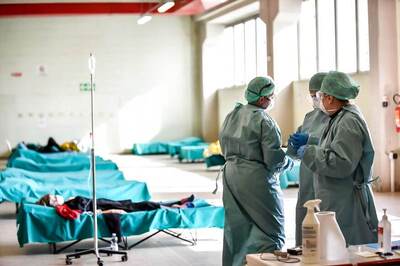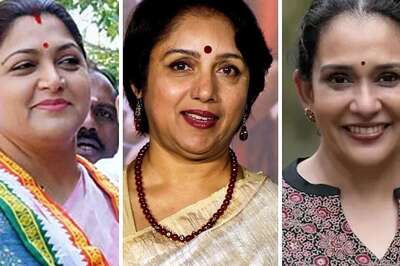
views
Vienna: Delegates from oil-producing countries started arriving on Wednesday in Vienna to discuss output cuts in a meeting overshadowed by worries over the new coronavirus -- both its affect on oil prices as well as a big gathering like the Organization of the Petroleum Exporting Countries (OPEC).
Two medical staff members, wearing Red Cross vests, were taking the temperature of ministers and other delegates entering the Vienna headquarters of OPEC.
OPEC itself tweeted a video of Secretary-General Mohammad Barkindo greeting Russian Energy Minister Alexander Novak by trying to touch their feet together in a "footshake" -- respecting coronavirus guidelines to avoid close body contact as much as possible. Media have been barred from the building in an effort to keep participant numbers to a minimum.
Cookies and sandwiches were served on the sidewalk outside the building instead of next to the press conference room, usually thronged by journalists.
The OPEC extraordinary two-day meeting takes place on Thursday and Friday in the capital of Austria, which itself has recorded almost 30 cases of the new coronavirus nationwide.
OPEC, led by Saudi Arabia, and its allies in the so-called OPEC+ group -- foremost among them Russia -- will discuss how to halt the sharp fall in oil prices in the past two months as the epidemic has spread and global oil demand has slumped.
At their last meeting in December, the producers agreed to cut production by 500,000 barrels per day, with Saudi Arabia offering a further 400,000 barrels of "voluntary" cuts.
The cuts announced in December initially had the desired effect of an uptick in prices -- already under pressure at that point from abundant reserves and weak global growth -- but the epidemic has since sent them plunging again.
Upon his arrival, Iranian Oil Minister Bijan Namdar Zanganeh -- whose country has been strongly hit by the virus -- urged OPEC and its allies to cut at least around half a million barrels.
"After the coronavirus situation we have an oversupply in the market, it's necessary OPEC and non-OPEC do something for the balance in the market," he said.
OPEC's joint technical committee (JCT) last month recommended a cut of 600,000 barrels to ward off the effects of the coronavirus slowdown.
While some analysts say this may not be enough, a cut of that magnitude could also meet resistance from Russia and other countries that say they are comfortable with current price levels.




















Comments
0 comment